Scoutmaster Musings
Archives:
2025 - Jan
2023 2022 2021 2020 2019 2018 2017 2016 2015 2014 2013 2012 2011 2010 2009 2008 2007 2006 2005
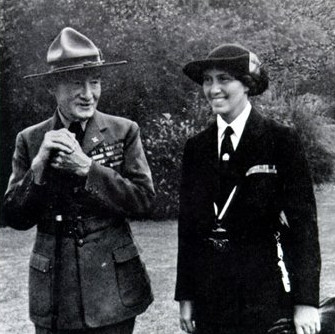
Happy Birthday to Lord Robert Baden-Powell!
Little Bobbie was born on February 22, 1857 and would grow up to eventually start the Scouting movement that has encompassed the globe, so today is celebrated as Scouts' Day, Founders' Day, and Guides' Day.
It is called Founders' Day instead of Founder's Day because Robert founded Scouting for boys and girls with his sister, Agnes.
Today is also the birthday of the girl who would grow up to marry Robert and be an integral part of early scouting, Olave St. Clair Baden-Powell. They met in 1912, on the RMSP Arcadian while sailing through the Caribbean to New York. They got married the day before Halloween that same year - quite a whirlwind romance, huh? He was 56 and she was 24 when they married.
Scout-Guide Week is celebrated right now in Canada. It is the week on which February 22 falls.
And, it's World Thinking Day also - a day for scouts to think about and appreciate all their scouting sisters and brothers around the world.
One more thing - if your children are grown and you think you're too old for any more Scouting, consider that Lord Baden-Powell did all of his work with boy and girl Scouts after he turned 50 years old.
Scout On!
| Leave Comment |

Today's letter from the national Boy Scouts of America leadership...
Dear Scouting Family,
Today, the national organization of the Boy Scouts of America (BSA) filed for Chapter 11 bankruptcy to achieve two key objectives: equitably compensate victims who were harmed during their time in Scouting and continue to carry out Scouting’s mission for years to come.
While the word “bankruptcy” can be intimidating, it is important to know that Scouting programs will continue. Your regular unit meetings and activities, district and council events, other Scouting adventures and countless service projects will take place as usual.
We took this action today amid increasing financial pressure on the BSA from litigation involving past abuse in Scouting. We are outraged that there have been times when individuals took advantage of our programs to abuse innocent children and sincerely apologize to anyone who was harmed during their time in Scouting. We believe victims, we support them, we provide counseling by a provider of their choice, and we encourage them to come forward. Our plan is to use this Chapter 11 process to create a Trust that would provide equitable compensation to these individuals.
As we go through this process, we want to make certain that all Scouting parents and volunteers know the following:
- Scouting is safer now than ever before. Approximately 90% of the pending and asserted claims against the BSA relate to abuse that occurred more than 30 years ago. As someone close to Scouting, you know the safety of children in our programs is the BSA’s absolute top priority and that one instance of abuse is one too many. That’s precisely why over many years we’ve developed some of the strongest expert-informed youth protection policies found in any youth-serving organization.
From mandatory youth protection training and background checks for all volunteers and staff, to policies that prohibit one-on-one interaction between youth and adults and require that any suspected abuse is reported to law enforcement, our volunteers and employees take youth protection extremely seriously and do their part to help keep kids safe. You can read more about the BSA’s multi-layered safeguards and our efforts to be part of the broader solution to child abuse at www.scouting.org/youth-safety. In fact, this is a resource that you can share with friends and family who are interested in understanding what the BSA is doing to keep kids safe. - Scouting continues. Scouting programs will continue to serve youth, families and local communities throughout this process and for many years to come. Just last year, communities across the country benefited from more than 13 million Scouting service hours, and young men and women earned more than 1.7 million merit badges that represent skills that will help them succeed throughout their lives. Studies prove and parents agree that Scouting helps young people become more kind, helpful and prepared for life, and as long as those values remain important to our society, Scouting will continue to be invaluable to our nation’s youth.
- Local councils have not filed for bankruptcy. Local councils – which provide programming, financial, facility and administrative support to Scouting units in their communities – are legally separate, distinct and financially independent from the national organization.
We know you will likely have questions about these issues and things you will see in the news. We have posted information about our restructuring on a dedicated website, www.BSArestructuring.org.
This site includes a helpful Resources page, where you will find a short video explaining what Chapter 11 means for Scouting, as well as a FAQ and a reference document that will help you discuss this announcement with youth in our programs. The site also includes a Milestones page, which will be your best source for the latest updates throughout this process.
If these resources don’t answer your questions, please feel free to reach out to us through Member Care at 972-580-2489 or MyScouting@Scouting.org. We will do everything we can to provide helpful, transparent responses and ensure your Scouting experience continues to be a great one.
Yours in Scouting,
Jim Turley
National Chair
Ellie Morrison
National Commissioner
Roger Mosby
President & CEO
| Leave Comment |
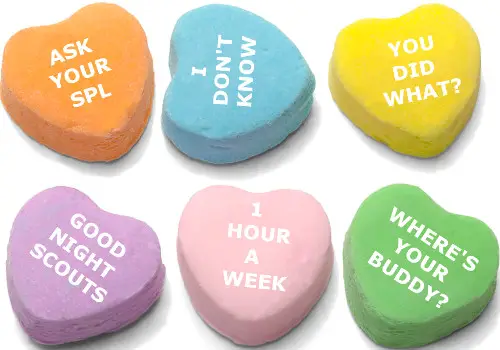
It has been brought to my attention that Valentines has morphed into two alternate celebrations. You can blame the TV show "Parks and Recreation" for the initial drive of these two pseudo-holidays.
Galentines Day started as a satirical bit on the show in 2010, setting Feb. 13 as a day for females to celebrate their female friends, especially those with no significant others. IRL women took and ran with it, keeping the day alive.
Palentines Day is just a natural expansion of that celebration to become gender neutral. Celebrate any and all friends you have with no romantic connotations.
Unfortunately, Scoutentines Day just doesn't have a very good ring to it. But, Hey, here's some candy hearts to celebrate anyway!
What other sayings would you put on hearts to share with your scouts and scouters? (up to 3 lines with 8 chars per line)
You actually can have custom hearts created - for example, here. Kind of expensive, but the fleur-de-lis on a heart might be cool. And, if you don't like those chalky hearts, other candies can be personalized, like M&Ms
Scout On!| Leave Comment |

How much does a year of Scouting really cost?
With the 81% increase (from $33 to $60) in annual dues imposed by the BSA national organization starting in January 2020, there has been plenty of hand wringing, teeth gnashing, and hair pulling in angst, anguish, and apprehension.
So, I was curious just how much that mandatory fee increase really affects the full cost of being involved in Scouting for a year. I made a poll to collect data from Scouting families.
The data is only what people estimate and share, and won't exactly match your situation, but it gives a rough idea of what others out there are spending to have youth involved in Scouting.
With 182 Cub Scout responses and 247 Scouts BSA responses, as of today, here's how the annual costs look:
- Cub Scouts costs about $550 and Scouts BSA costs about $950 - this does not include uniform costs
- Almost half have a council fee of $27 on average
- About 70% have an additional unit fee of $67 on average
- About 90% of Cub Scouts go to a summer camp costing $164 on average while virtually all Scouts BSA members do summer camp costing $334 on average
A few things that I found surprising:
- Weekend campouts cost around $35 each and the average scout attends almost 10 each year.
- Only a quarter of troops do their own high adventure outings. But, a scout will attend them every year or two and they cost around $425.
- Less than half of troops use the BSA high adventure bases, and a scout will spend about $1625 every 3.5 years to attend.
The bottom line is that the $30 BSA fee increase is around a 5% raise in the average cost of scouting for Cub Scouts and 3% for Scouts BSA. The impact is more significant on Cub Scout families just getting started.
Go ahead and have a look at the results page for more numbers.
I'll modify the survey and ask again next year. If you have some suggestions, feel free to email them (or comment).
Scout On!
| See 6 comments | Leave Comment |

Are you curious what a typical year of Scouting really costs? I am.
There's been quite a bit of chatter about the national BSA membership fee increase that goes into effect in a couple months.
Jumping from $33 to $60 is a huge percentage increase (like 90%!), but I expect it is more of a blip in the grand scheme of Scouting expenses.
I created an anonymous survey that asks for your input. No email or other personal info is needed, just your honest best estimates.
I'll share the results here in a couple weeks - data such as the average council fee, average unit fee, average cost of high adventure treks.
Scout On!
| See 2 comments | Leave Comment |

I believe all Scouting units should support each other with the intent that all youth get the opportunity to experience Scouting. Some troops in a community see other troops as competition and refuse to help the other units improve. By having all units improve, Scouting improves, and more youth will tend to participate - maybe not participate in your unit, but still be in Scouting.
Providing the framework for, and attitude of, Cooperation rather than Competition, the youth leaders of your units can gain more skills and improve Scouting for their fellow Scouts. A periodic gathering of leaders is a fun, easy, and inexpensive way to do that.

Once each quarter, all SPLs and ASPLs are invited to gather and share what they have done, share what they have planned, and ask questions of the group. I call it a Silver and Gold Party because of the SPL and ASPL patches, but call it whatever you think would draw participation.
The Hook: How do you entice youth to participate? Pizza, rootbeer floats, sundaes, 6-foot sub, .. - around $2 per person that each participant should bring. If bling is your thing, maybe a gold star or some such device to pin on their position patch for each party they attend.
The Line: How does knowledge get shared? Each SPL takes only 1-2 minutes to talk about their troop's recent activities and what they have coming up in the next 3 months. The leader lists activity titles on a whiteboard. After all the presentations, anyone can ask questions about activities - how well it worked, planning involved, what to do different next time, and the like.
The Sinker: How do the troops improve? SPLs commit to taking ideas back home. These could be "Gee, it looks like we're doing everything right!" or "Hey, over at Troop 123 they're going to YYY this summer!" The youth learn from each other how their counterparts are doing things and pick up tips, ideas, and enthusiasm.
The Grab Bag: Allow an open time for scouts to ask each other for advice on any Scouting topic - How do you get scouts to be quiet? Are your new scouts as weird as ours? How do you handle electronics? What's a good lights out time? They can ask advice about anything they're finding to be a challenge.
For the first couple parties, someone (probably the adult organizing this) leads the gathering, but having a different troop's SPL lead it each quarter is best. Holding it at each troop's meeting place lets everyone see the "home turf" of other units and get ideas.
If done each quarter, then SPLs in troops that elect every 6 months can attend twice.
With 5 troops, set aside 5-10 minutes for ice breaker and showing off the host troop's meeting area, 5 minutes to get food, 10-15 minutes for SPL reports, 15 minutes of QnA, 10 minutes of discussion, 5 minute wrap-up, and out of there in under an hour.
| Leave Comment |

If your scouts have already earned the Exploration merit badge and are looking for something more interesting, it's your lucky day!
The Tattoo Merit Badge was just announced and the merit badge pamphlet is available in scout shops and as electronic download.
If you email in the results of your requirement #8 project, I'll post it with the others I've received like these:
With all the changes and updates being done for the "Boy Scouts" to "Scouts BSA" migration, this merit badge has not yet been added to the official list on scouting.org but should be there soon. Two other merit badges in that same state of limbo for a few years now are the Walking merit badge and Hunting merit badge. Please ensure your scouts are aware of these additional badges, especially if they are trying to earn them all.
Scout On!Check out Cub Scout Super Achiever patches
| See 4 comments | Leave Comment |
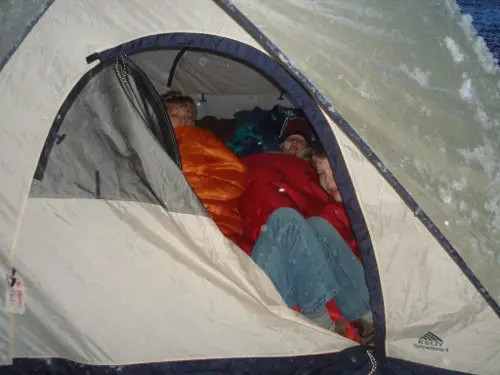
Are you just waking up from your winter hibernation?
Did you put off finding a summer job for too long?
With all your leadership qualities, outdoors skills, and interpersonal communications learned in Scouting, many opportunities are out there for you to work in exciting, adventurous settings.
Whether you are a high school or college student, or looking for full-time work, there are many needs across the country that you can take on. Here are a few...
All the BSA high adventure bases need staff every year. It's getting late, but you still might have time to grab a spot at:
More BSA jobs:
Outside of the BSA program, there are even more jobs that a Scout might find interesting, challenging, and rewarding:
- Boundary Waters Outfitter
- Appalachian Trail Ridge Runners interact with A.T. hikers to improve the trail experience.
- National Park Service has thousands of outdoor jobs.
- Forest Service
- Coolworks lists outdoor jobs
If you don't want to work this summer, you could Hike a Long Trail or Bike across the country.

Or, you could always stock shelves at the local grocery store. I did it, most boring job I ever had.
Scout On
| Leave Comment |
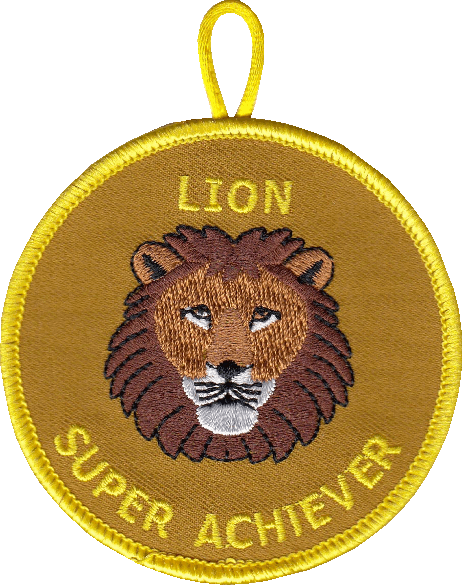
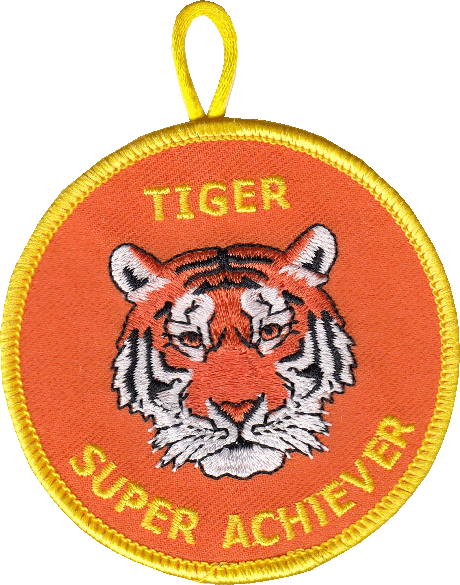
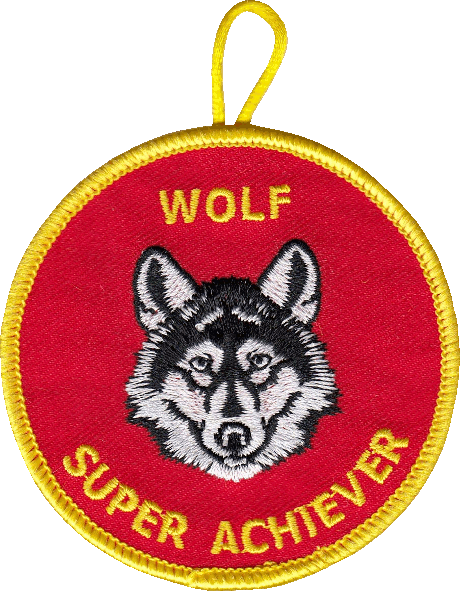
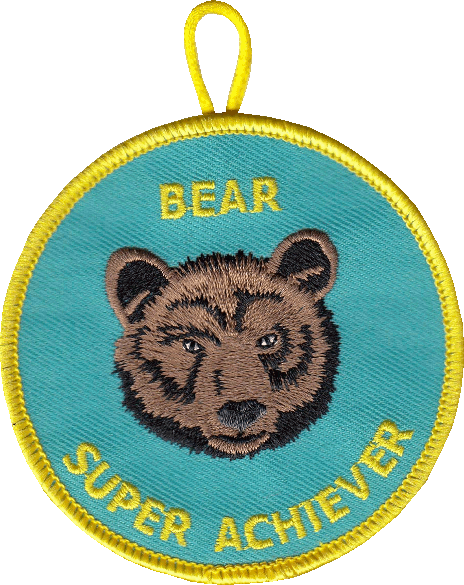
You can get a Super Achiever patch for all Cub Scouts in each rank that earn all Adventure pins. The Webelos patch has been available for awhile, but now there's a patch for Lion, Tiger, Wolf, and Bear.
This Super Achiever patch is not an official advancement award, but is a popular way to recognize scouts that do more than the rank requirements.
See the Super Achiever patch order page.
| Leave Comment |

With females officially joining the Scouts BSA program today, I look forward to helping them get as much as they can out of their scouting experience. Most of my involvement is currently with adult leaders preparing for high adventures, but I anticipate some volunteer opportunities to help female scouts with outdoor skills.
It has been entertaining to see many adult leaders and female scouts-to-be on news feeds, interviews, and web articles as they anticipate this date. It's an exciting time to be in the first wave of a new program.
We now get to see how the substantial changes to the organization over the past couple years affect national and local scouting. Will membership explode or speed up its decline? How will the percentage of male/female membership swing, and will it capsize all the way over, or just rock back? Will females be treated the same as males, forced to higher standards by uncooperative old guard, or let slide by with a wink and nod to advance quickly? Will co-ed dens, troops, and patrols soon be the norm?
2019 looks to be yet another interesting year for Scouting in America. Best of luck to all those new Scouts signing up or crossing over.
Scout On!
| Leave Comment |

Lack of adequate Personal and Camp hygiene is a common problem on outings, and something that is easy to prevent. With a little education and effort, no one should get sick when out in the wilds.
First, a few common problems encountered by long-distance hikers on the Appalachian Trail:
- Sharing Food - once someone touches their food, it is contaminated with their germs. If you finish off someone else's extra tater tots, oreos, or whatever, you ingest their germs. Only take what you will eat, and eat what you take.
- Not Washing Hands - dirt on your hands is easy to see and easy to wash off with just water. Rather than the visible dirt, it's the invisible germs, filth, and human waste that cause more problems. Even when hands look clean, you really should wash after using the bathroom and before dealing with any food. This is considered by many as the most common cause of illness in the outdoors.
- Sleeping in Close Quarters - sickness you have growing inside you can spread through the air from exhaling, sneezing, or coughing. When many people are packed in a small space, such as a shelter, tent, or cabin, they all breathe much of the same air. Two-person tents, or open-air sleeping, reduces the confinement problem.
- Insect-borne Disease - in North America, mosquitoes are spreading diseases such as West Nile and Zika, but they are still relatively rare. Lyme disease from ticks is much more common, and spreading. Treating clothes, checking for ticks often, and using insect repellant or bug clothes greatly reduce the chance of contracting these diseases.
- Water-borne Disease - everyone drinks treated water from the faucet at home, and they know wild water can be contaminated. Knowing the proper way to use a treatment method, and performing the task correctly, is the simple way to stay safe. Skipping treatment "just this once", dropping a filter in the water, not waiting for chemicals, or any number of other excuses cause much discomfort on the trail.

A key area of camp hygiene that scout groups tend to perform regularly is the washing of dishes and cooking equipment. Even though it is done every meal, people still get sick because there is some hard-to-stop misinformation about the proper way to wash dishes at camp. If there is one helpful thing you can do for your scout group, it is to teach, promote, and check on proper dishwashing technique.
- Pre-wash - eat, lick, and scrape off all visible food bits. When dishes get to the next step, they should already look fairly clean.
- Wash - a bucket of hot water and soap to scrub everything off the dishes. Shake all the water off before passing to next step.
- Rinse - a bucket of hot water to rinse off anything lingering behind, like soap.
- Sanitize - a pot of cool water containing chlorine or iodine. Soak for 30 seconds. Chlorine can be a shorter time, but it won't hurt to be longer.
- Air Dry - set dishes upside down on a towel or clean surface to drip dry for 30 minutes or more. Wiping dry with a common towel will spread germs from one dish to the next.
The common misinformation is switching the Sanitize and Rinse pots, or using hot water in the Sanitize pot. It doesn't make sense to rinse after sanitizing, just let the dishes air dry. Using hot water with the sanitizing chemicals makes them less effective.
This proper way to wash dishes is not something I made up. The CDC, ServSafe, every state health department, and Canada recommend the same process.

A few other tips for dishwashing:
- Wash cleanest things first, such as glasses and utensils, working your way to the dirtiest last which are probably the cooking pots.
- To dispose of the wash water, use a screen strainer to catch bits. Strain pot #1. Pour pot #2 into #1 and strain again. Pour pot #3 into #2, then into #1, and strain again. This gets your pots clean, too.
- Dispose of wash water into a sump, or broadcast it away from camp - depending on your camping location.
- Dishwashers should wash their hands well after doing the dishes.
The BSA has created a Dishwashing video - pretty lame, but has the right steps.
So, do your scouts a favor and share proper dish washing techniques to keep everyone happy, healthy, and hungry.
Scout On
| See 1 comment | Leave Comment |
This is a sponsored post written by me on behalf of The Nature Conservancy. All opinions are 100% mine.
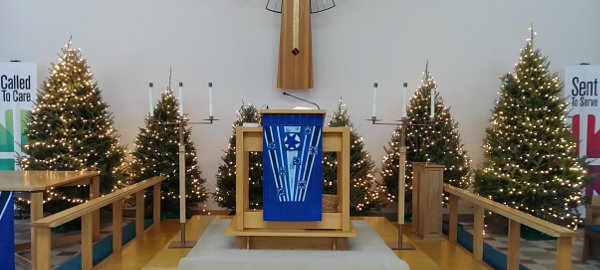
The holidays can become times of excess - so many big meals, so many parties, so many presents to buy, and not enough time to put up decorations, hit the sales, or attend the plays and productions. While putting in all the effort to make the holidays fun for all, it's easy to overlook the long-term environmental damage we may do. As Scouts, we should take the time to look and try to minimize our impact.
Last week, I helped our pastor pick out and set up six Christmas trees in our sanctuary. Those trees were harvested from a commercial forest where they had been absorbing carbon dioxide, storing carbon, and putting out oxygen for years, as well as providing cover for wildlife. In the empty spots where they stood, new trees are being planted. Many BSA troops sell trees as a fundraiser. We got the trees for church from a local BSA troop that uses the church as their tree lot. After Christmas, our city recycles trees left by the curb, but I do know scouts across the country pick them up and recycle them as a fundraising service.
Other troops sell wreaths. We've bought a wreath every year and I dismantle them when they're no longer needed in January. I compost the greens, recycle the metal, and re-purpose the pair of pine cones that come on each one. We've now got a couple of pine cone trees that help decorate outside our home, and another gradually being made.

A big part of Scouting is getting out in nature, learning about it, enjoying it, and conserving it. My two Eagle Scout sons and I have enjoyed literally hundreds of days and nights in the great outdoors and we do try to ensure it will be available for future scouts. There are many other organizations besides the BSA that work to protect our world, sometimes doing a better job than us. The Nature Conservancy, for example, has priorities that align with Scouting.
The Nature Conservancy has been helping keep spaces natural for over 65 years and has a mission to "conserve the lands and waters on which all life depends". They've protected well over 100,000,000 acres of land. Taking a bit from the Outdoor Code, they want to help us be more conservation-minded this year, and have created a useful Holiday Green Guide with good ideas to consider. Download the guide by entering your name and email to find out the best way to be a little greener this holiday season. By reading the guide and keeping the handful of easy tips in mind, you can have a happy holiday and help the earth.
One of their tips is to use natural decorations when possible. Another is to help you with gift ideas. Buying presents just because it's time to buy presents can result in piles of "stuff" that doesn't get used and eventually gets donated or thrown away. Certainly give gifts, but be sure they are wanted. For those people like me that no longer have a Christmas list, giving a unique and interesting Symbolic Gift can be a good option. Symbolic gifts are typically monetary donations to an organization that the recipient supports, and the recipient receives some small item explaining what was given in their name. For example, through The Nature Conservancy, you can donate and have the recipient receive a certificate and bookmark about bison, orangutan, sea turtle, or other wildlife that the gift helps to protect.
My wife and I have been giving symbolic gifts for years and this year we've asked our two sons to try it for gifts to us. Find out more about having a greener holiday by downloading the Holiday Green Guide - it will at least give you a few interesting topics to keep the conversations going at all those parties in the next few weeks.
Scout On!
| Leave Comment |
Comments:
Feb 25, 2023 - Joe Patterson
Mar 16, 2023 - Adam John
Jan 21, 2024 - Johnna Downing
Scouting 2025 - Ask a Question - Add Content
Just for Fun: Socializing merit badge




Find more Scouting Resources at www.BoyScoutTrail.com
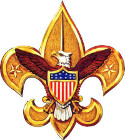


Follow Me, Scouts
Recent Comments